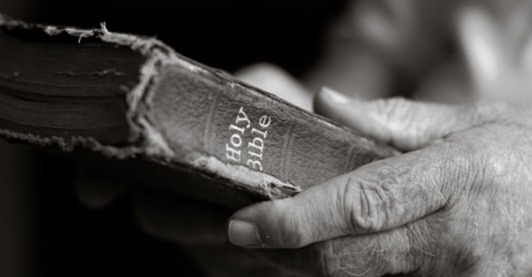The founder of Methodism, John Wesley (1703-1791) was an indefatigable circuit-riding preacher. His many sermons were published in both book and tract form. The following excerpt is from a tract Mr. Wesley distributed widely in both England and America. His “Thoughts on Slavery” contains a powerful indictment against those who plied the slave trade. Doubtless many of the traders thought that Wesley’s exposé would upset their livelihood. Especially against the backdrop of possible retaliation, Wesley’s call to the slave traders and owners to repent is both passionate and courageous. One can only image how Wesley would rail about abortion on demand. God help us to exercise a similar quality of courage to speak the truth in our own day.
May I speak plainly to you? I must. Love constrains me; love to you, as well as to those you are concerned with.
Is there a God? You know there is. Is he a just God? Then there must be a state of retribution; a state wherein the just God will reward every man according to his works. Then what reward will he render to you? O think betimes! before you drop into eternity! Think now, “He shall have judgment without mercy that showed no mercy.”
Are you a man? Then you should have a human heart. But have you indeed? What is your heart made of? Is there no such principle as compassion there? Do you never feel another’s pain? Have you no sympathy, no sense of human woe, no pity for the miserable? . . . Do you feel no relenting now? If you do not, you must go on, till the measure of your iniquities is full. Then will the great God deal with you as you have dealt with them, and require all their blood at your hands. And at “that day it shall be more tolerable for Sodom and Gomorrah than for you!” But if your heart does relent, though in a small degree, know it is a call from the God of love. And “to-day, if you will hear his voice, harden not your heart.” To-day resolve, God being your helper, to escape for your life. Regard not money! All that a man hath will he give for his life! Whatever you lose, lose not your soul: nothing can countervail that loss. Immediately quit the horrid trade: at all events, be an honest man.
This equally concerns every merchant who is engaged in the slave trade… Be you a man, not a wolf, a devourer of the human species! Be merciful, that you may obtain mercy!
And this equally concerns every gentleman that has an estate in our American plantations; yea, all slave-\ holders, of whatever rank and degree; seeing men buyers are exactly on a level with men stealers. Indeed you say, “I pay honestly for my goods; and I am not concerned to know how they are come by.” Nay, but you are; you are deeply concerned to know they are honestly come by. Otherwise you are a partaker with a thief, and are not a jot honester than him. But you know they are not honestly come by; you know they are procured by means nothing near so innocent as picking of pockets, house breaking, or robbery upon the highway. You know they are procured by a deliberate series of more complicated villany (of fraud, robbery, and murder) than was ever practised either by Mahommedans or Pagans; in particular, by murders, of all kinds; by the blood of the innocent poured upon the ground like water. Now, it is your money that pays the merchant, and through him the captain and the African butchers. You therefore are guilty, yea, principally guilty, of all these frauds, robberies, and murders. You are the spring that puts all the rest in motion; they would not stir a step without you; therefore, the blood of all these wretches who die before their time, whether in their country or elsewhere, lies upon your head. “The blood of thy brother” (for, whether thou wilt believe it or no, such he is in the sight of Him that made him) “crieth against thee from the earth,” from the ship, and from the waters. O, whatever it costs, put a stop to its cry before it be too late: instantly, at any price, were it the half of your goods, deliver thyself from blood guiltiness! Thy hands, thy bed, thy furniture, thy house, thy lands, are at present stained with blood. Surely it is enough; accumulate no more guilt; spill no more the blood of the innocent! Do not hire another to shed blood; do not pay him for doing it! Whether you are a Christian or no, show yourself a man! Be not more savage than a lion or a bear!1
![]()
Footnotes:
![]()
1 John Wesley, “Thoughts Upon Slavery,” in The Works of the Reverend John Wesley, A.M., ed. John Emory (New York: T. Mason and G. Lane, 1839), 6:291-292.





